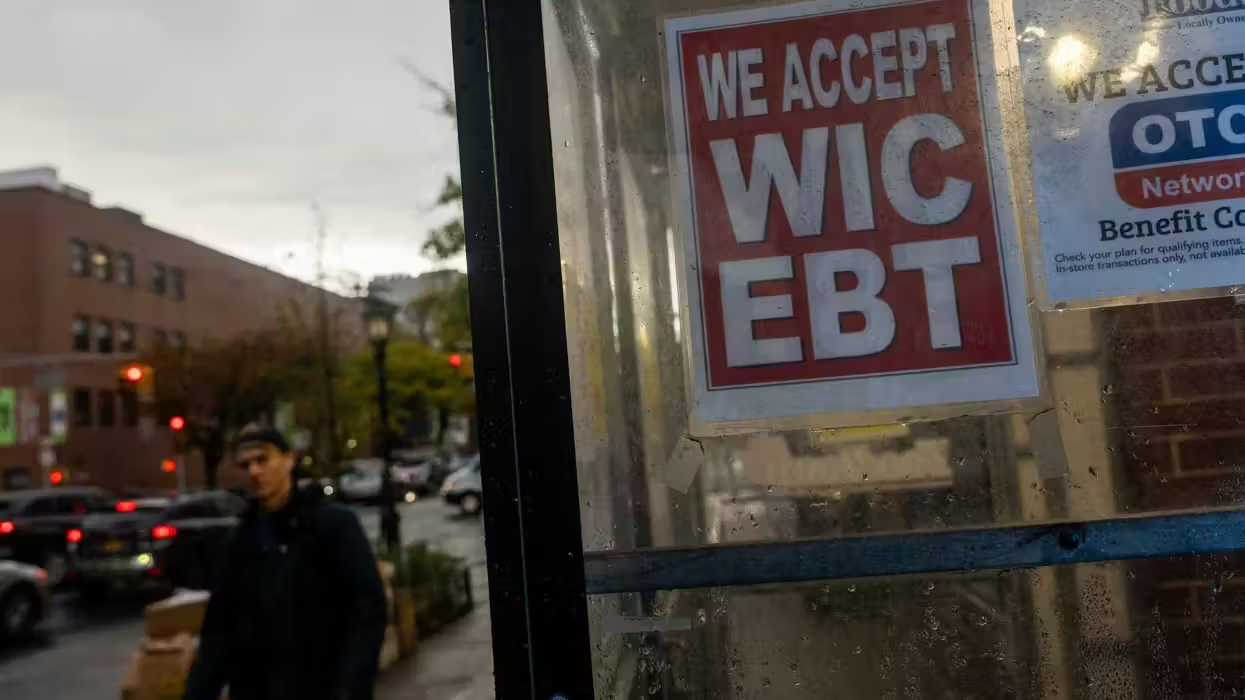
© 2025 Blaze Media LLC. All rights reserved.
Lucas Papademos, the former vice president of the European Central Bank and current Prime Minister of Greece’s interim coalition government, has been called a puppet of the Euro-troika, a technocrat, and a traitor by some protesters, but one thing he can’t be accused of is being a democrat. As the unelected chief executive of Greece, Papademos’ appointment is a sobering reminder that the birthplace of democracy has arguably become a less democratic government than Egypt.
An analysis of the Papademos regime’s priorities should be enough for anyone to doubt the democratic nature of Greece’s current government. It’s not the Greek people, and it most certainly is not Greek law. If several months of forcing unpopular austerity measures down the people’s throats are any indication, the number one priority of Greece's chief executive is to implement the will of the central banks and nations to whom Greece is in debt. Furthermore, news that 150 German tax collectors are preparing to assist Greece in making its collection system more efficient has been met with cries of “colonization." While this might be an exaggeration (I find it highly unlikely that the tax collectors will have jack boots to match their calculators) what is occurring in Greece is an absolute contravention of the principles of liberal democracy and presents a serious sovereignty crisis for the ailing state.
The fall of Greek self-determination is not surprising. What does a nation have when it has nothing left? Ultimately, the currency of last resort for the debtor nation is its sovereignty.
What’s true on the national level is true on the state and municipal level as well. Last year alone, America had within her borders a number of municipal mini-Greeces, whose economic misadventures are strikingly similar to those of the sick man of the Euro-zone. Structural deficits caused by generous benefits for government employees and overspending on risky investments eventually led to bankruptcy and self-determination being replaced by state receivership.
In Harrisburg, the state capital of Pennsylvania, the city found itself buried under more than $317 million in debt after a planned update to the city’s incinerators became fraught with mismanagement and graft. In addition, the city suffered from annual structural deficits as a result of revenue not keeping pace with expenses. Because of this insolvency the city entered state receivership in 2011, and a custodian was appointed to manage the city’s finances. In all likelihood --and despite legal objections -- Harrisburg residents will see forced concessions from the city’s three major unions, as well as increased taxation imposed upon them in order to balance the books.
A similar fate befell Jefferson County Alabama. The county, which includes Alabama’s largest city Birmingham, is drowning under $4.23 billion in debt, the result of a major sewer project and shady financial dealings that sent 17 people to prison. In 2011, the county filed the largest government bankruptcy in US history, eclipsing the previous record held by Orange County California. In a creepy parallel to Greece, the county’s financial troubles have even led to inadequacies in its tax collection services (there's no word on if the county has requested assistance from Germany).
Finally, Central Falls Rhode Island, the smallest city in that state, found itself in trouble when it promised its police and firefighters retirement benefits without bothering to setting aside adequate funds to pay for them. The familiar story came to a head when the municipal government found itself unable to make any progress in cutting pensions and retiree health care, forcing a state-appointed receiver to file bankruptcy on the embattled city’s behalf last August.
Greece, Harrisburg, Jefferson County, and Central Falls all suffer from the same illness: a debt crisis caused by their respective political establishments who, at the same time, either refuse or are unable to solve the very crisis they are responsible for. If this doesn't sound familiar to you, ask yourself when the US Government last made an effort to tackle entitlement reform, the source of its own structural deficits. While you’re in a contemplative mood, ask yourself if you foresee the election of a president or legislature with the political goodwill to do so any time in the near future.
What America needs to take away from the situation in Greece, as we tumble down the sovereign debt rabbit hole behind her, is that what lies at the bottom is undemocratic, coercive, and anathema to our founding principles. If Americans cannot bring themselves to make the tough decisions to restore fiscal health, someone who might not have our best interests at heart will.
Want to leave a tip?
We answer to you. Help keep our content free of advertisers and big tech censorship by leaving a tip today.
Want to join the conversation?
Already a subscriber?
more stories
Sign up for the Blaze newsletter
By signing up, you agree to our Privacy Policy and Terms of Use, and agree to receive content that may sometimes include advertisements. You may opt out at any time.
Related Content
© 2025 Blaze Media LLC. All rights reserved.
Get the stories that matter most delivered directly to your inbox.
By signing up, you agree to our Privacy Policy and Terms of Use, and agree to receive content that may sometimes include advertisements. You may opt out at any time.






